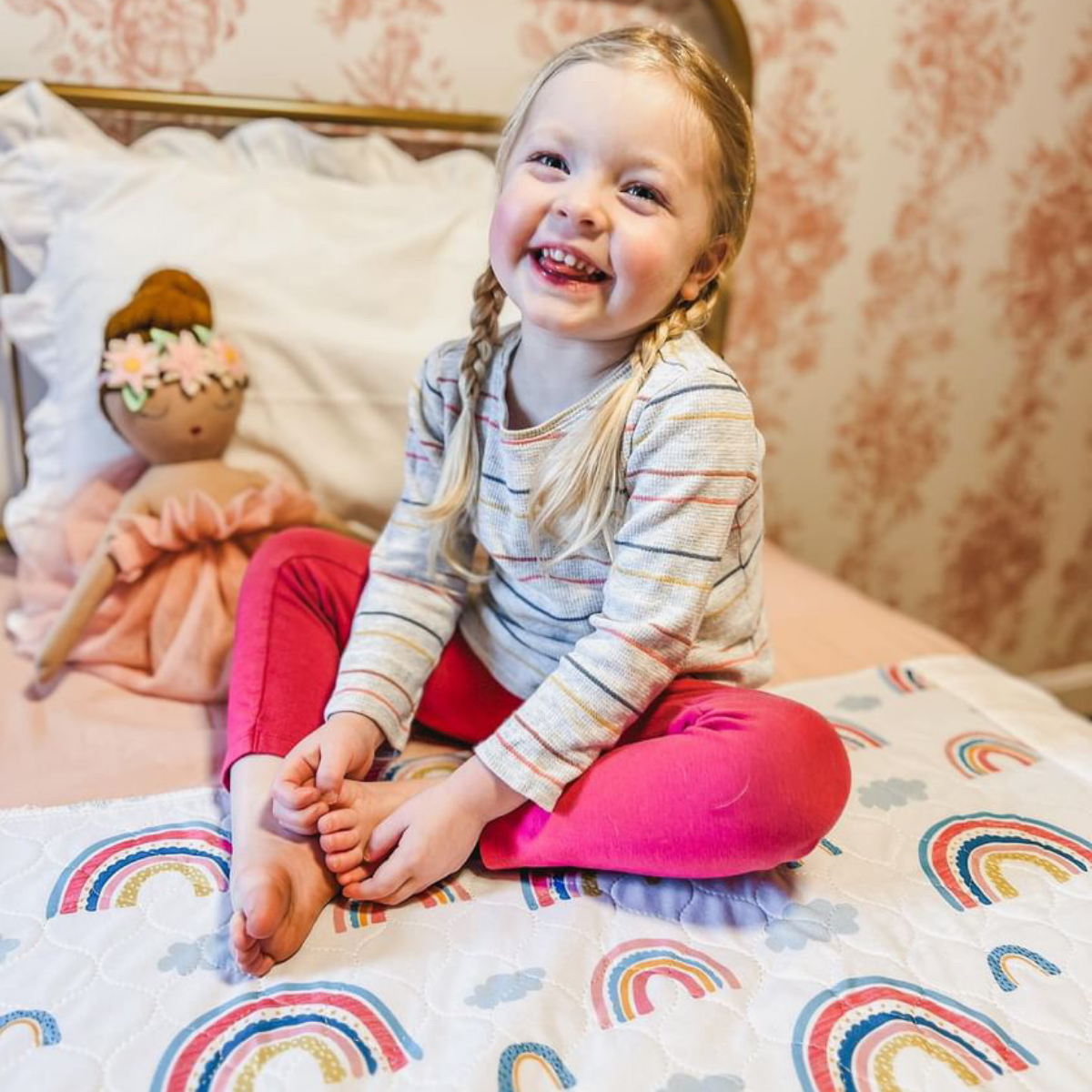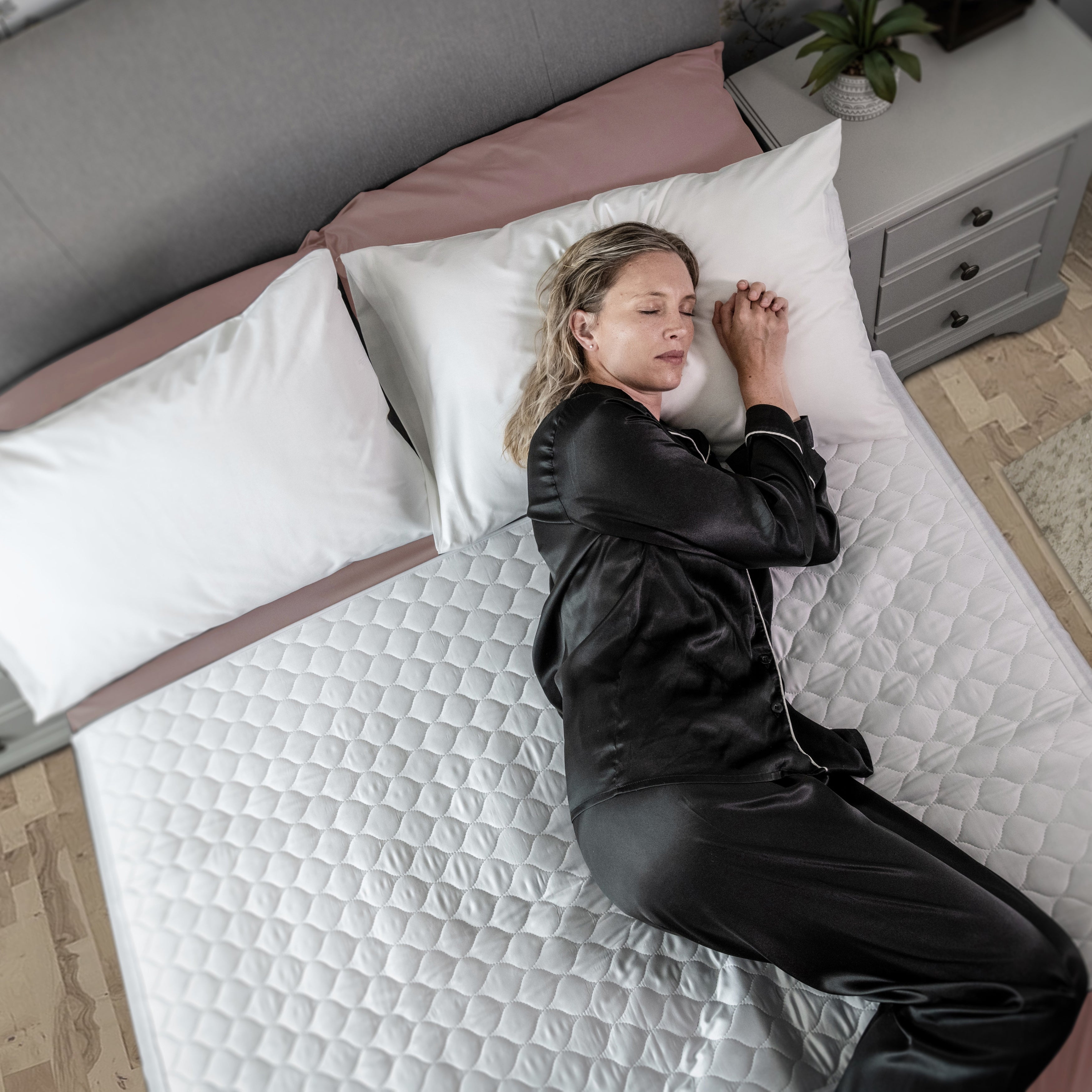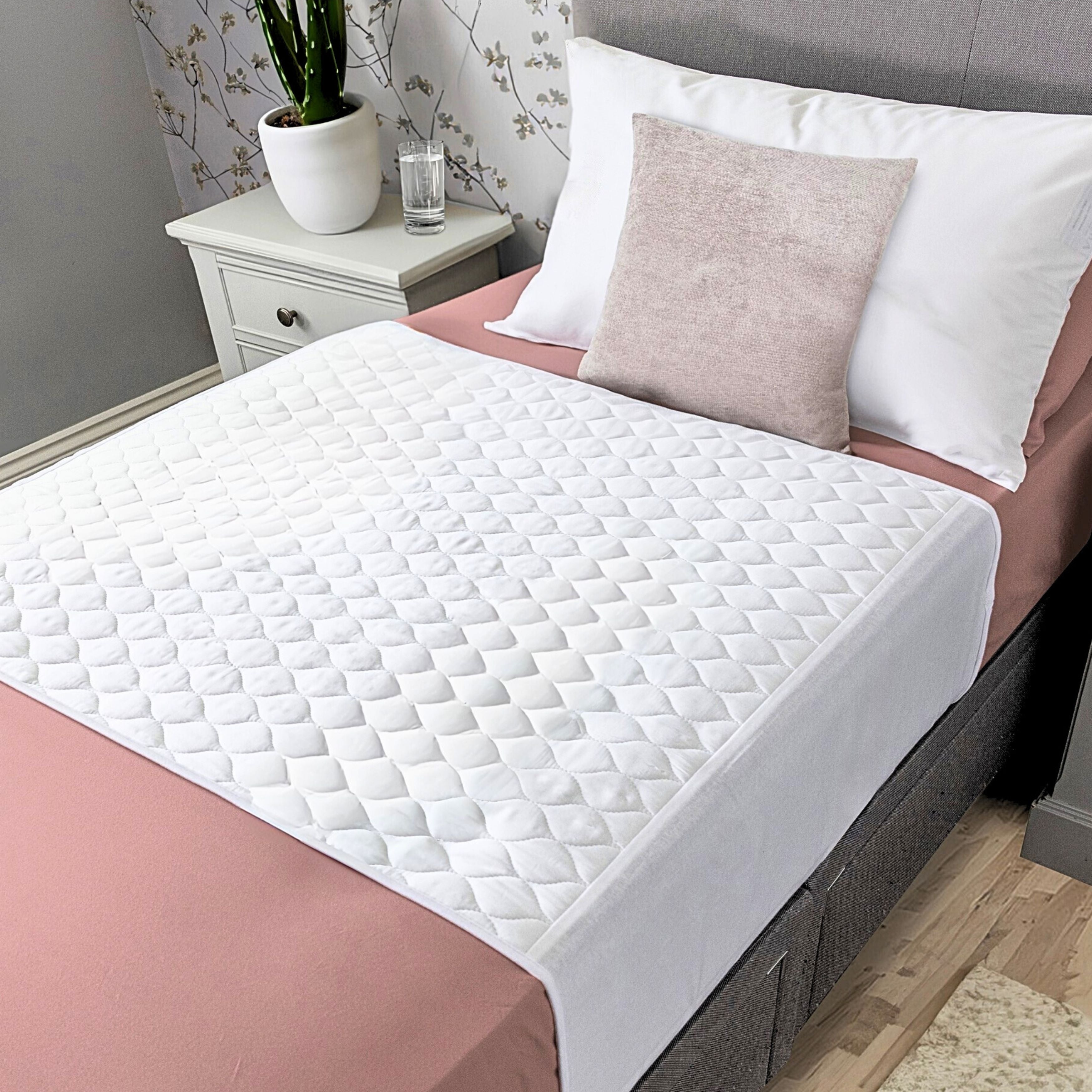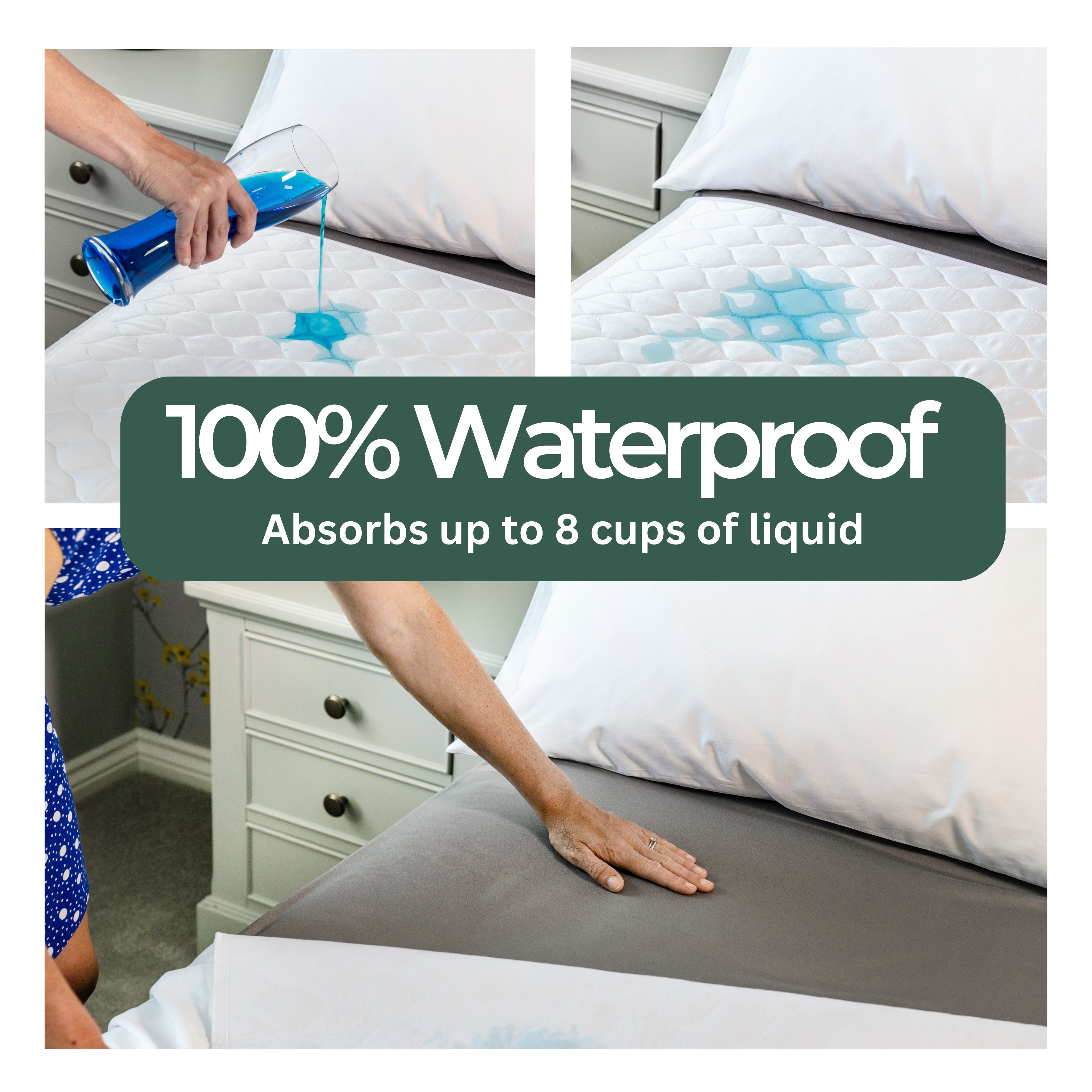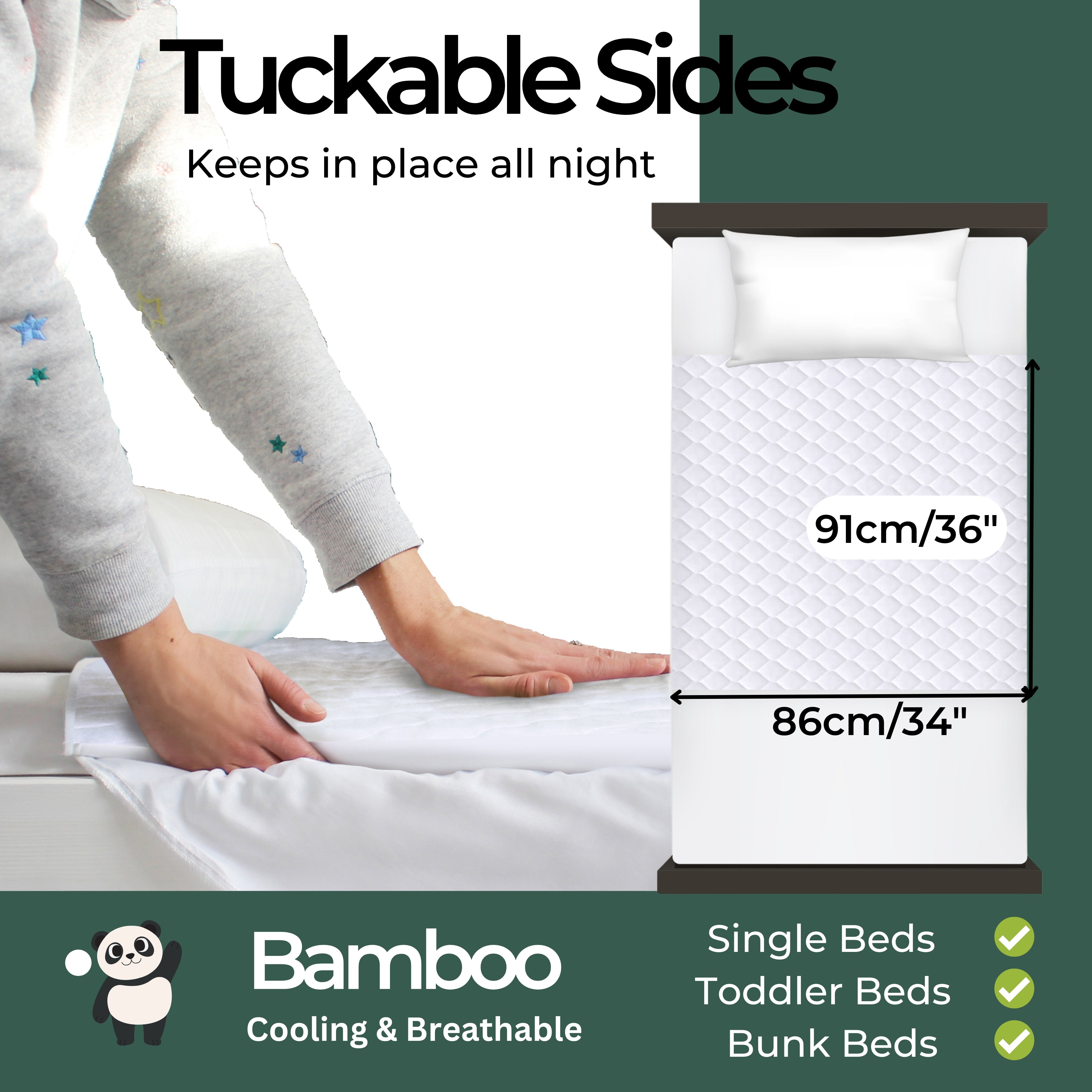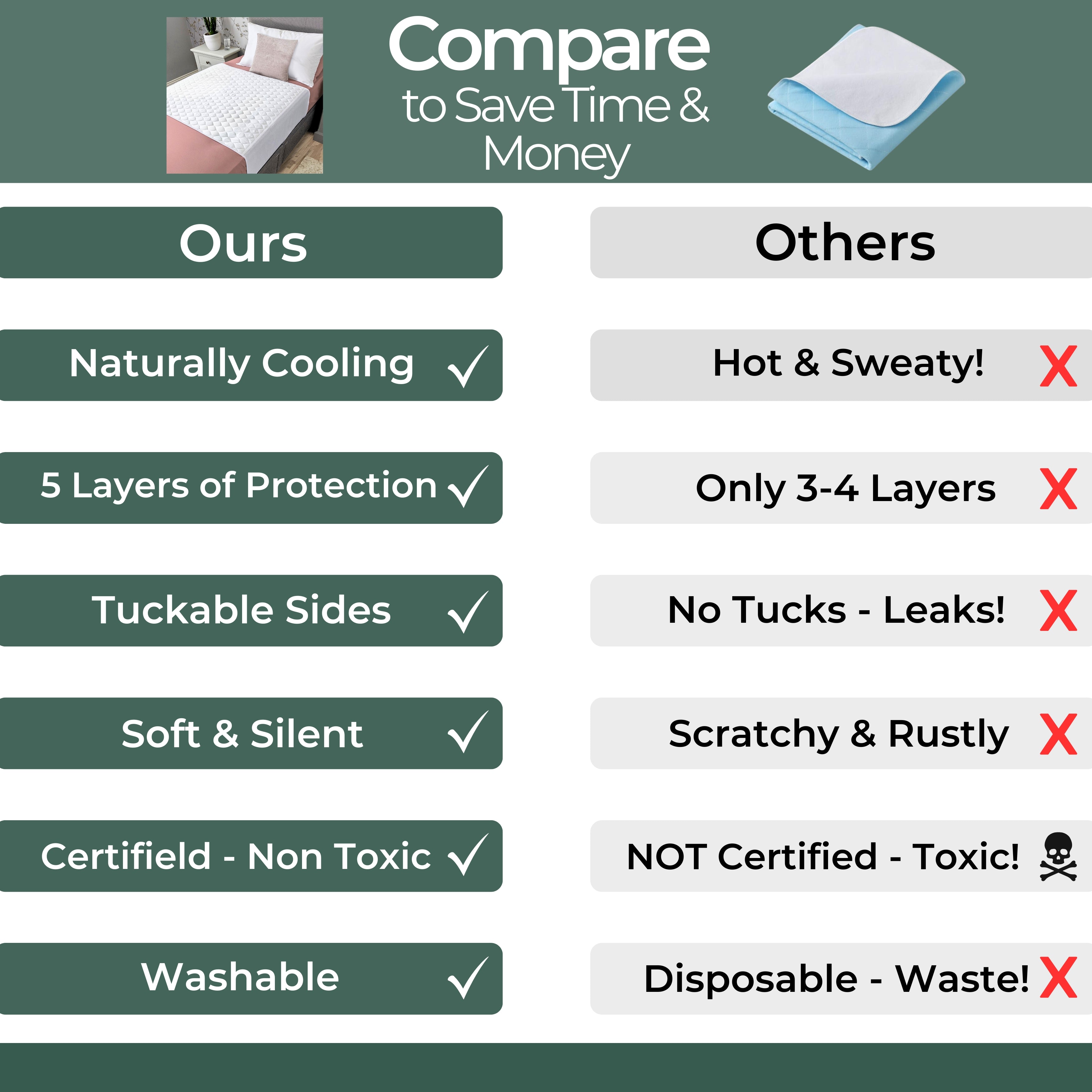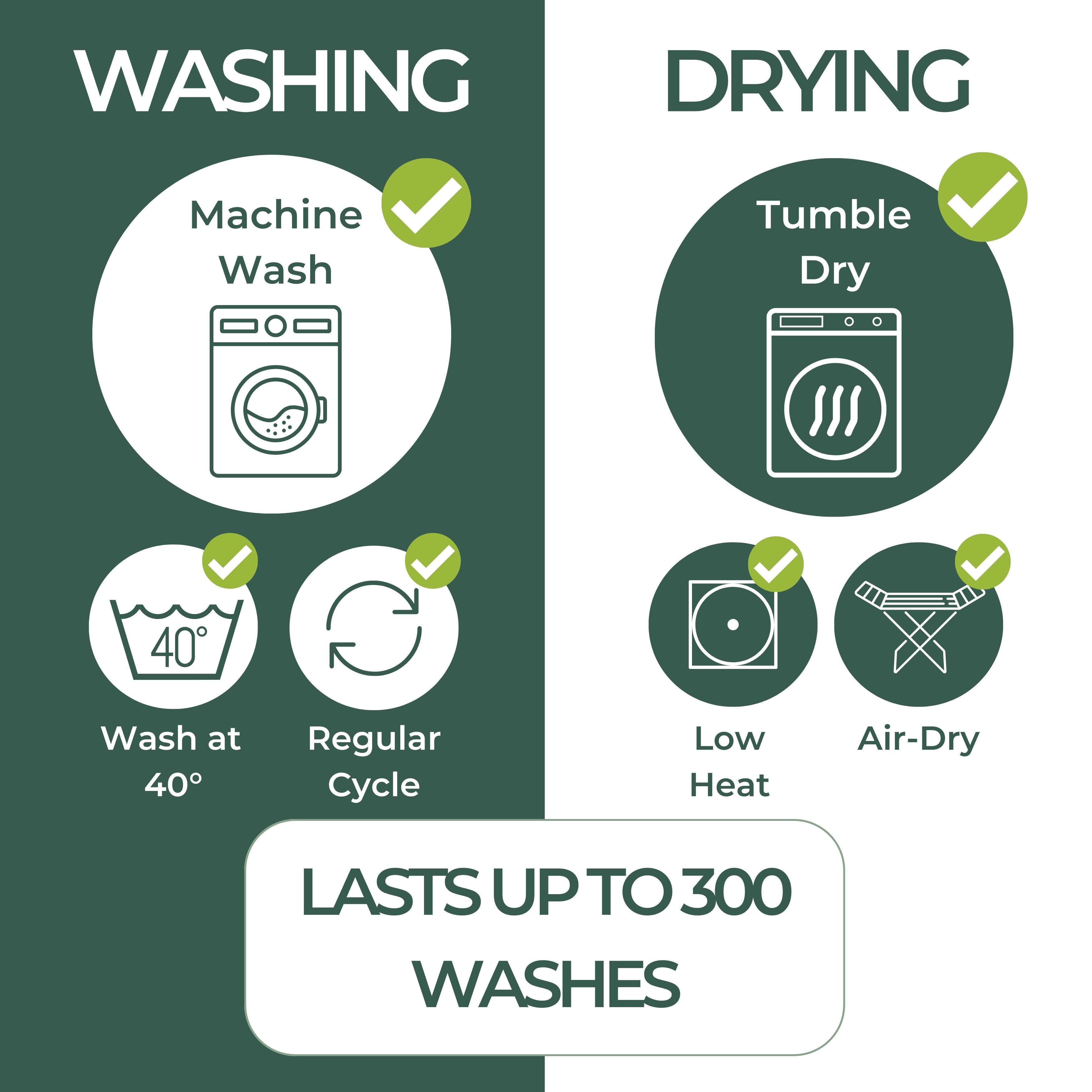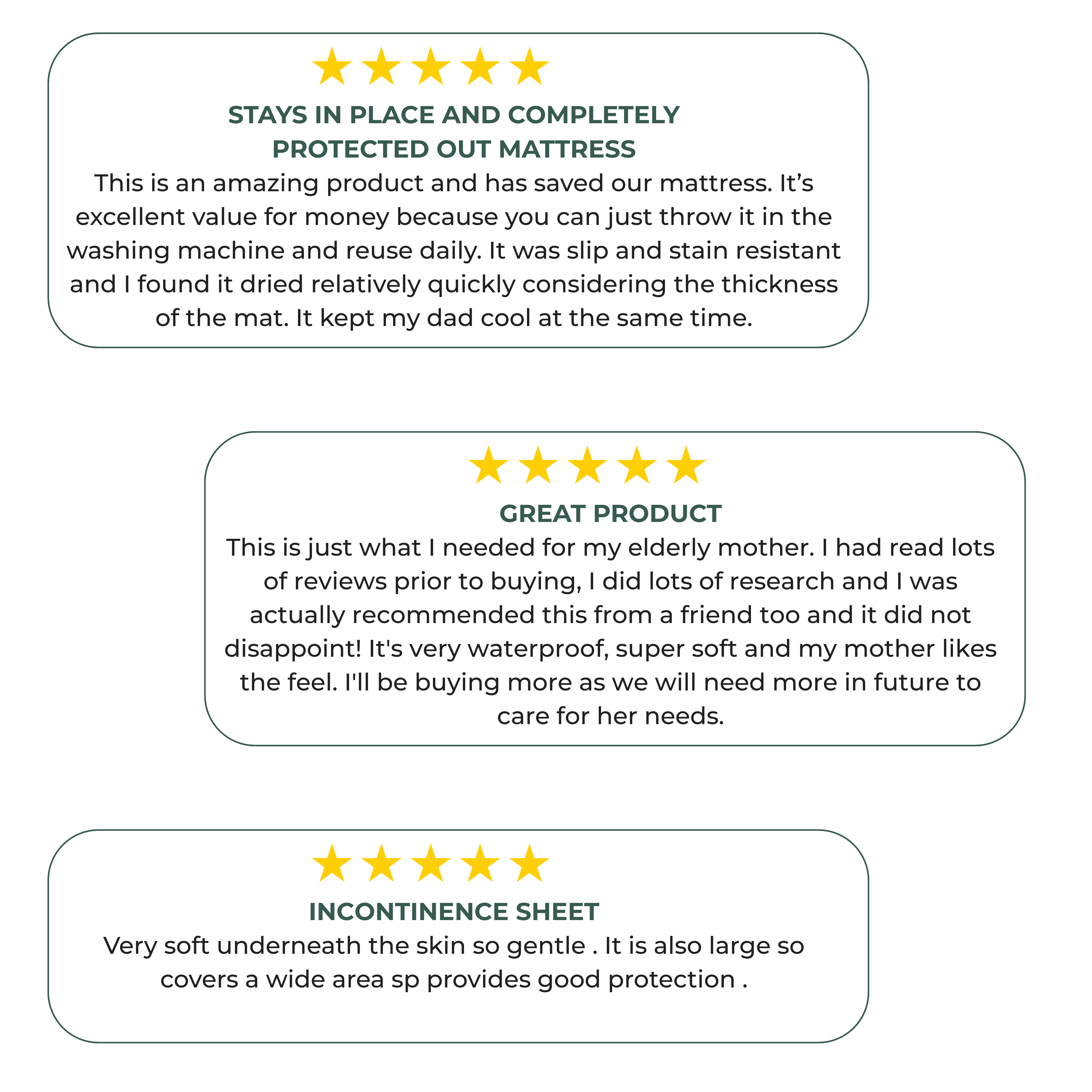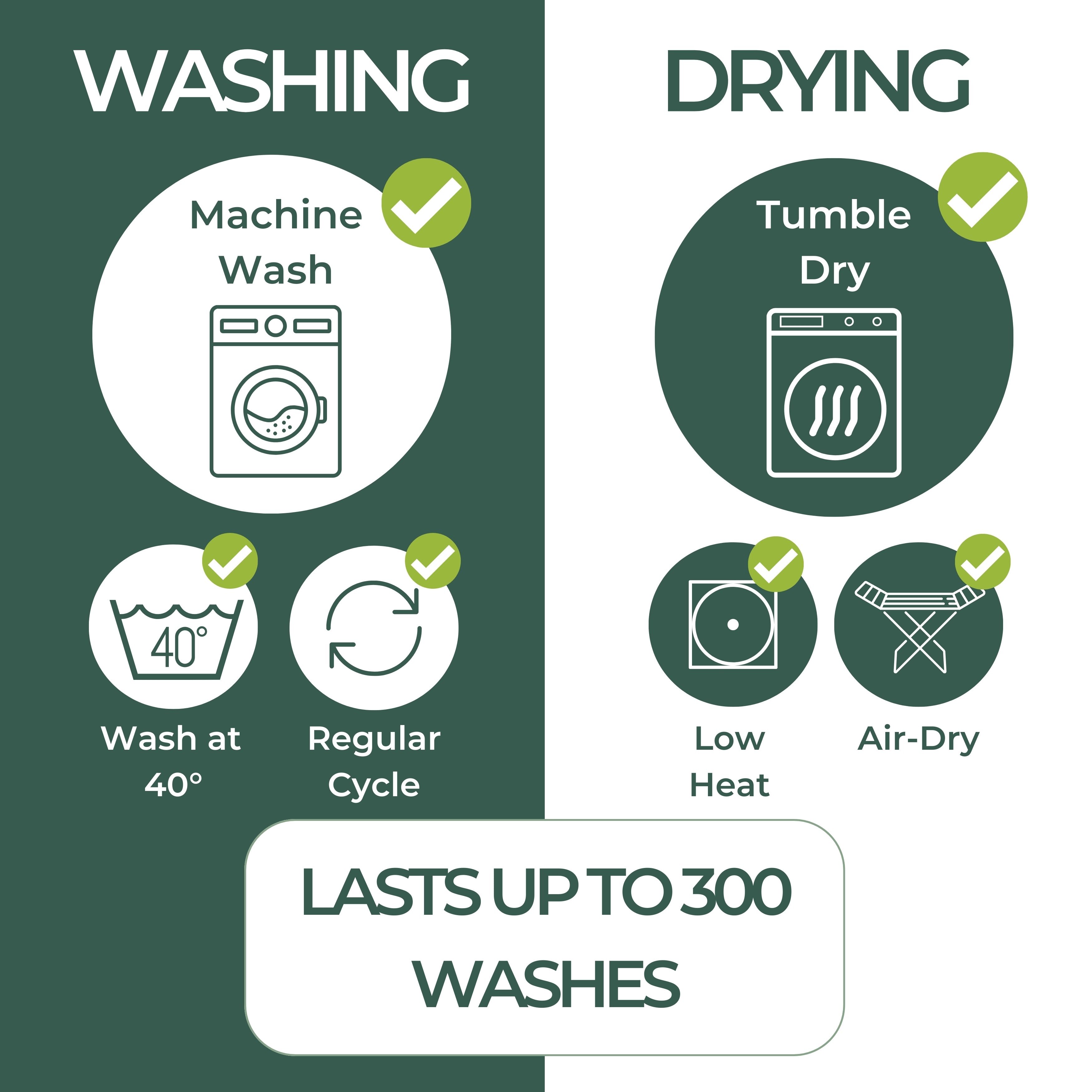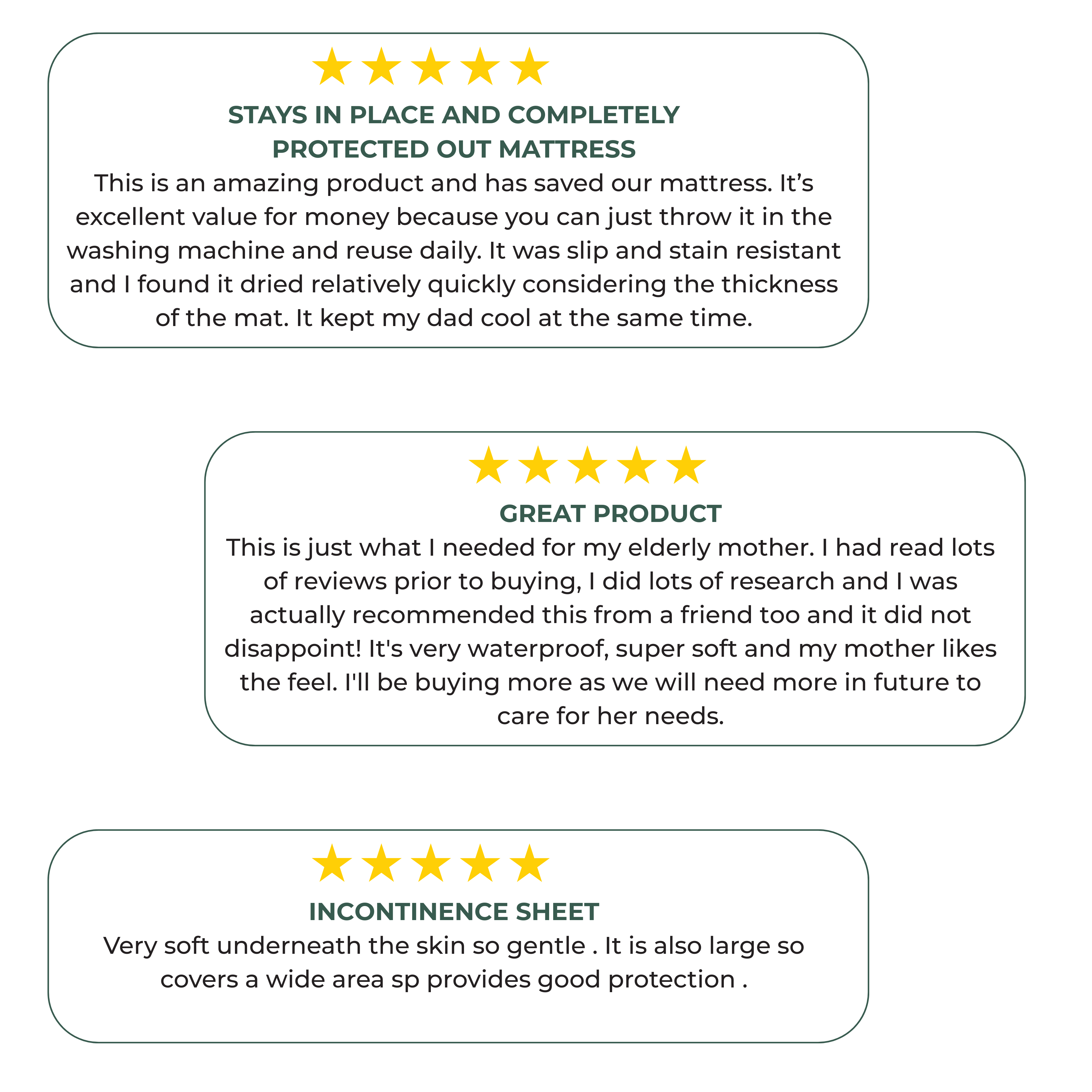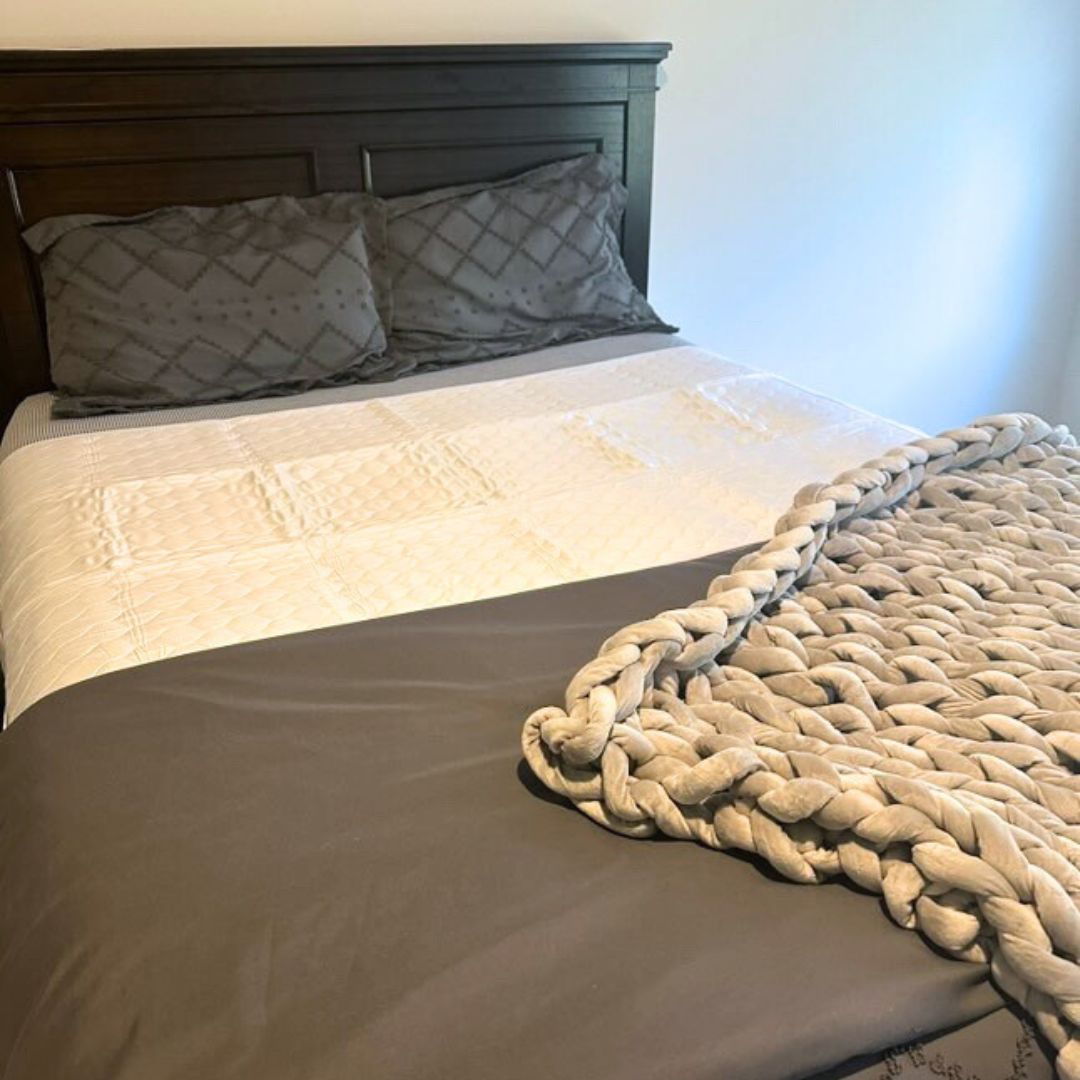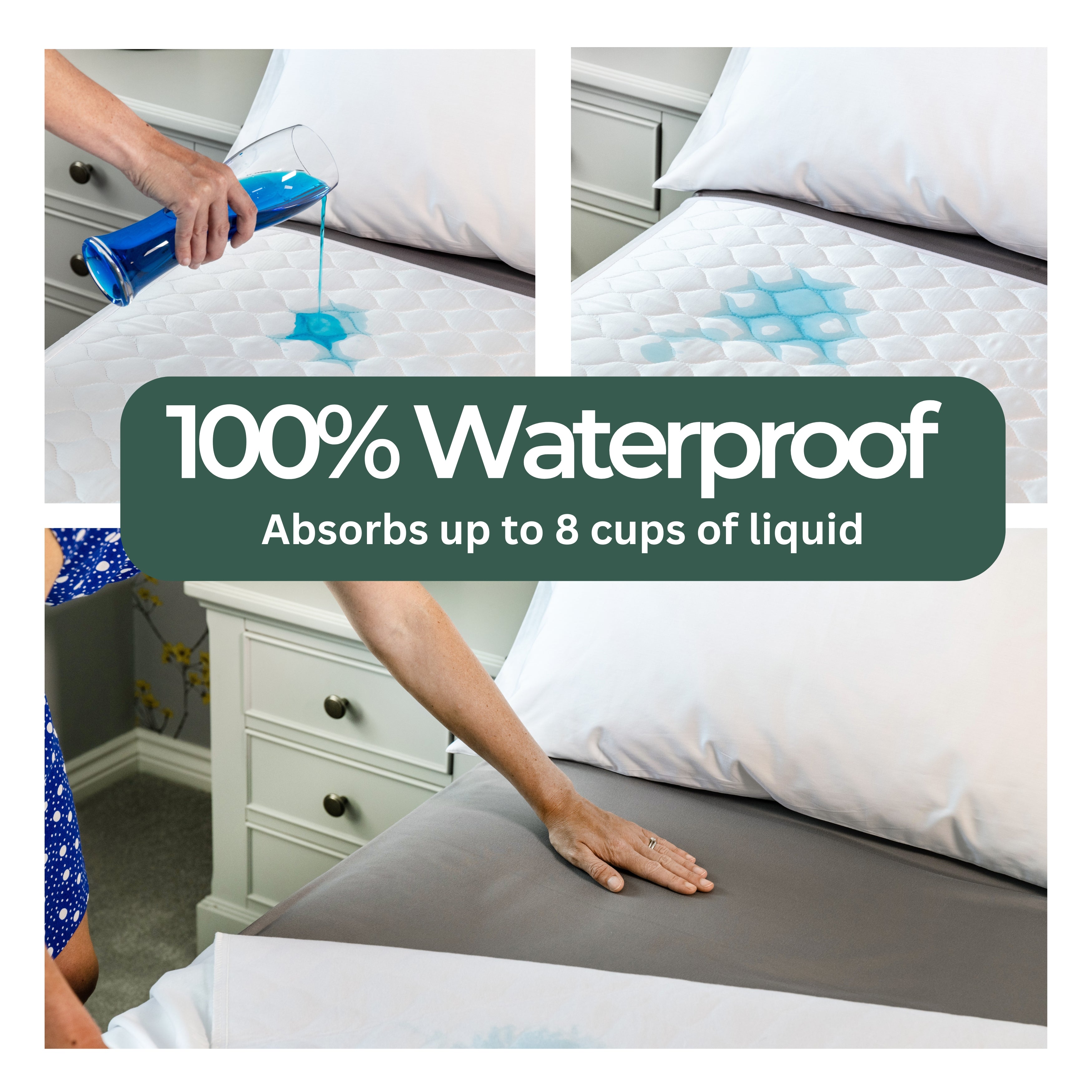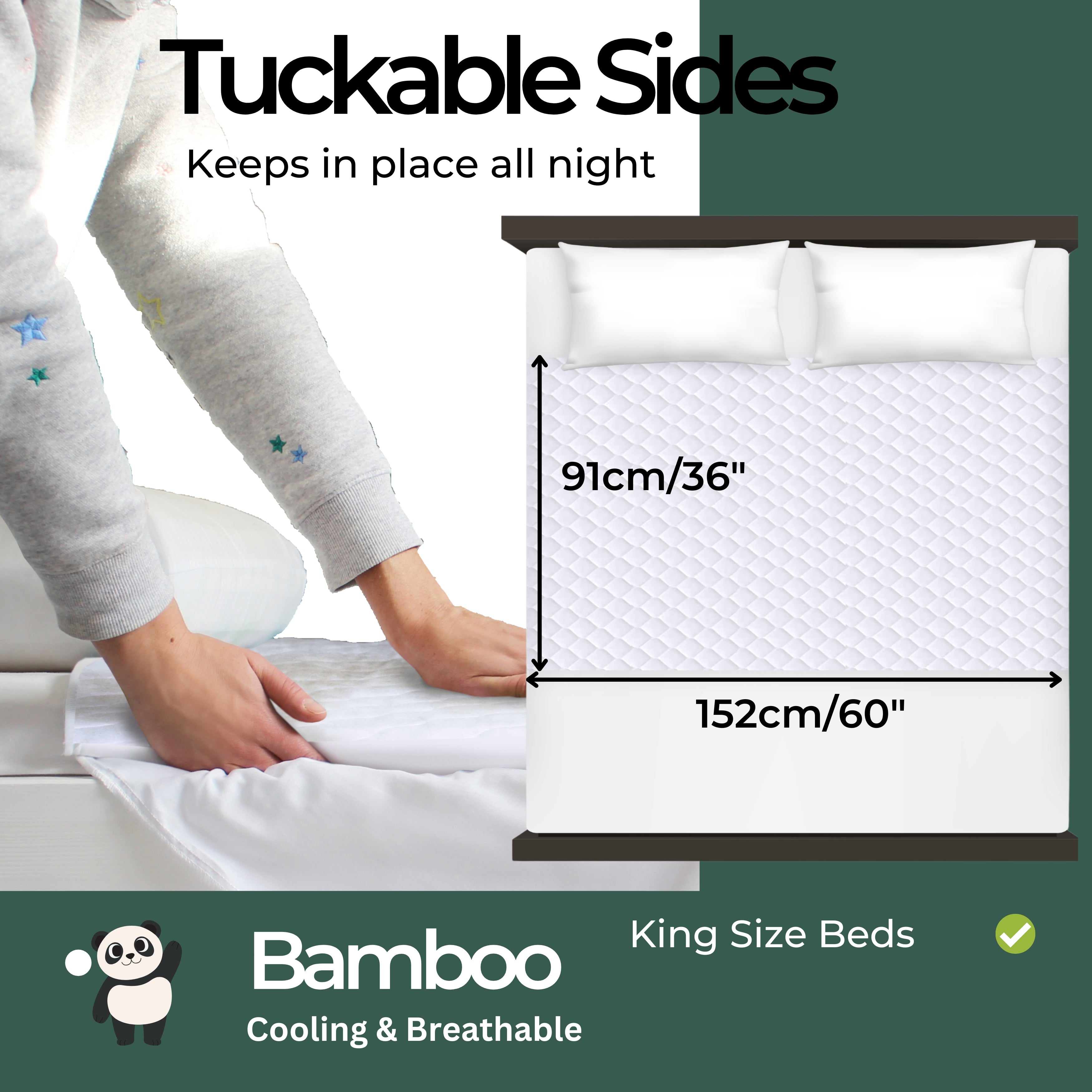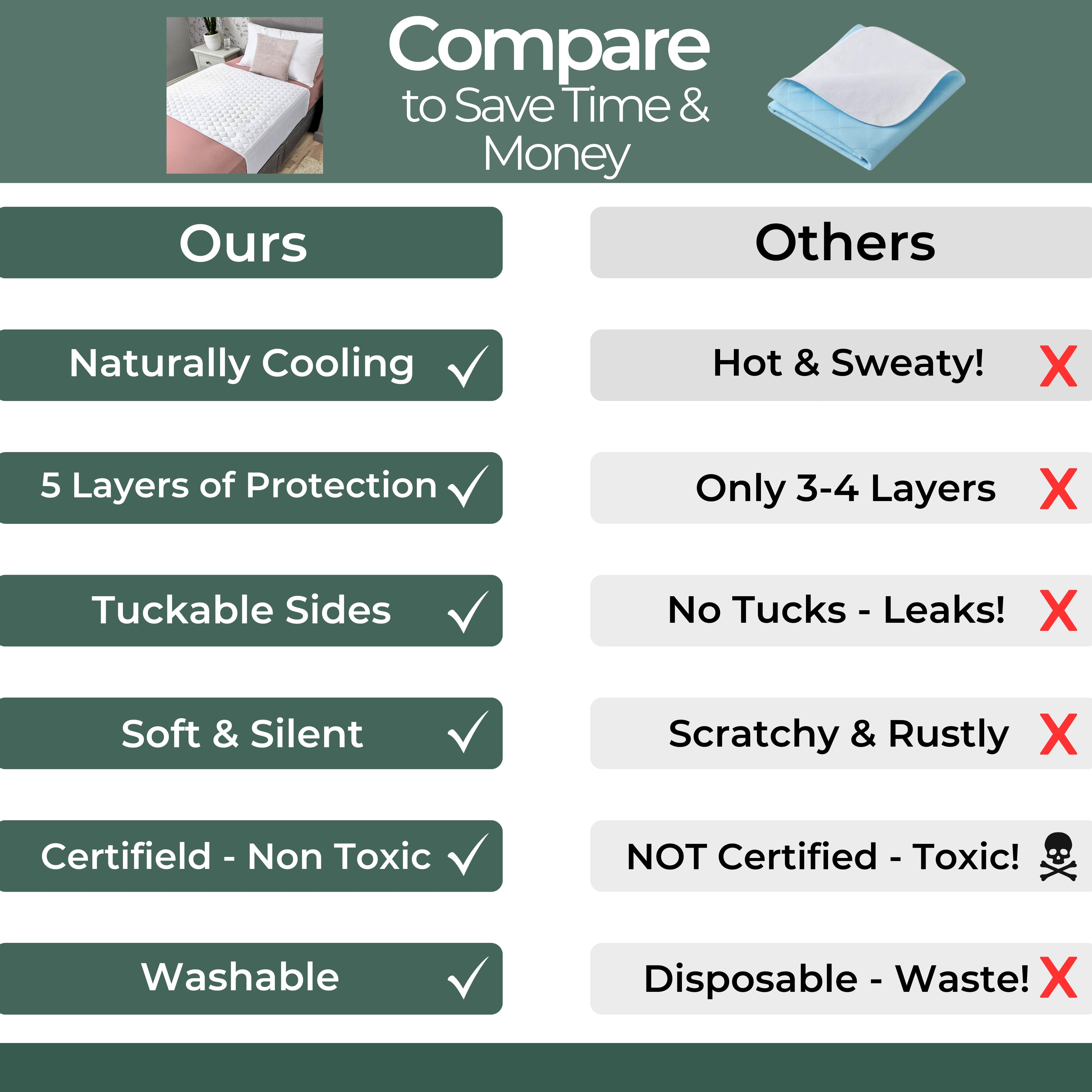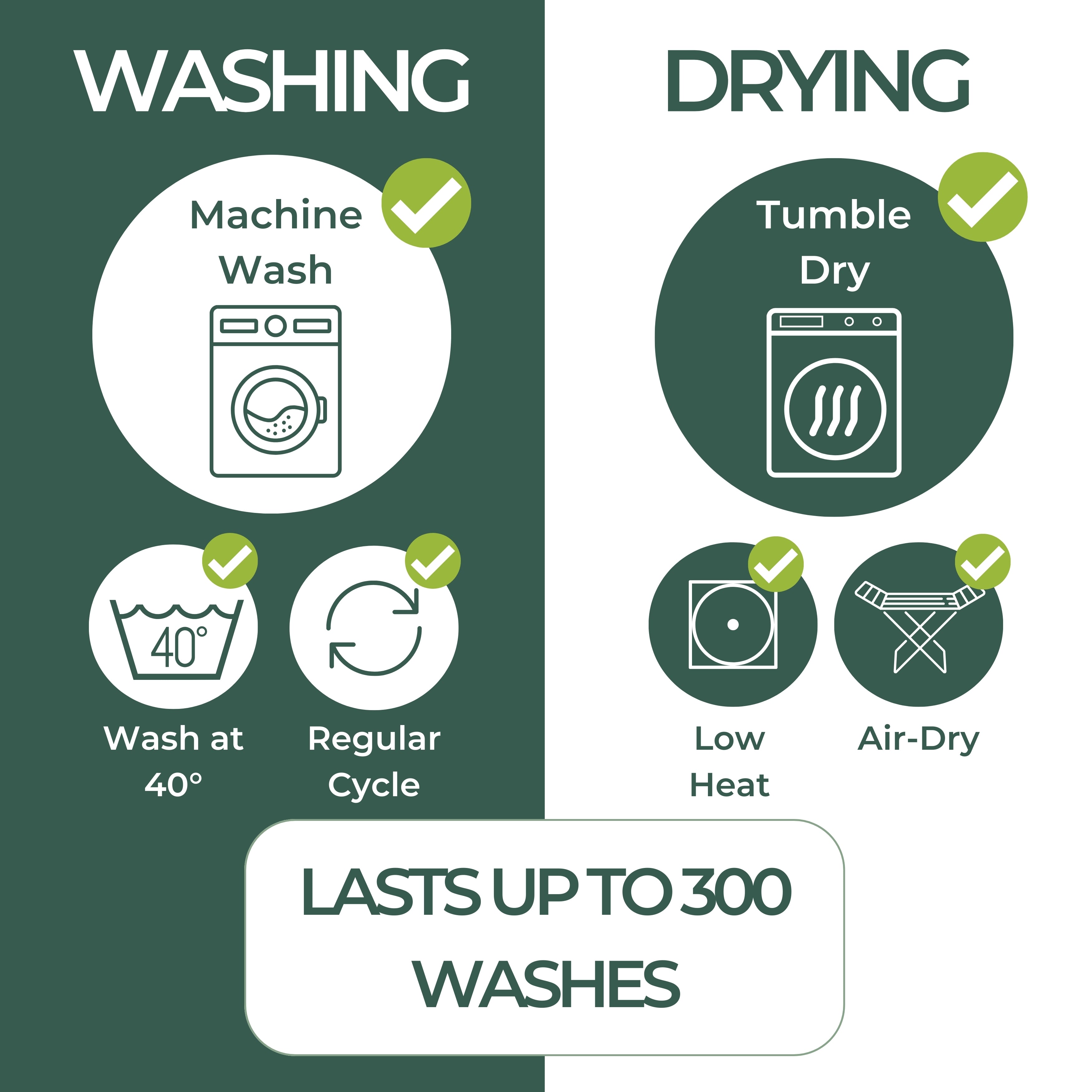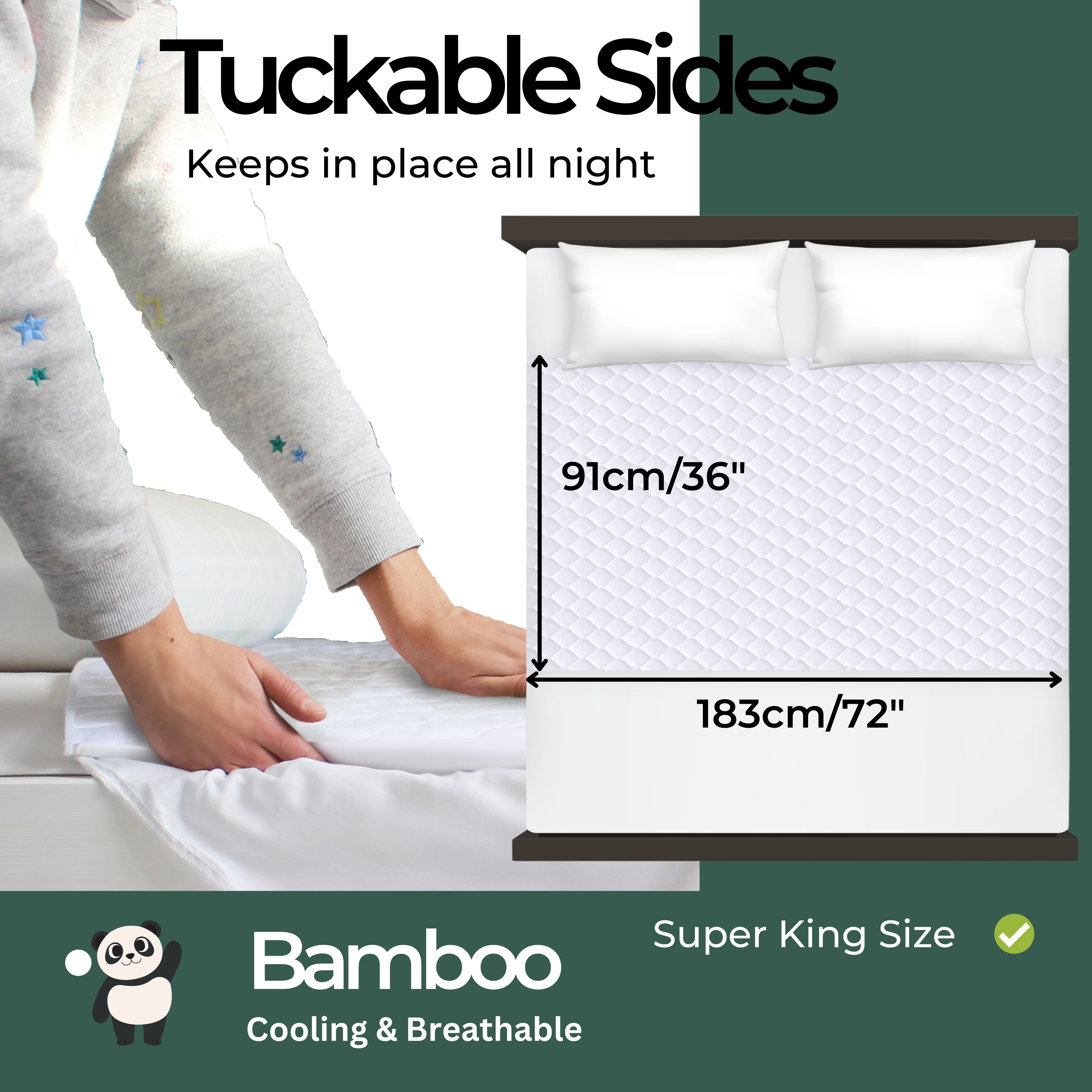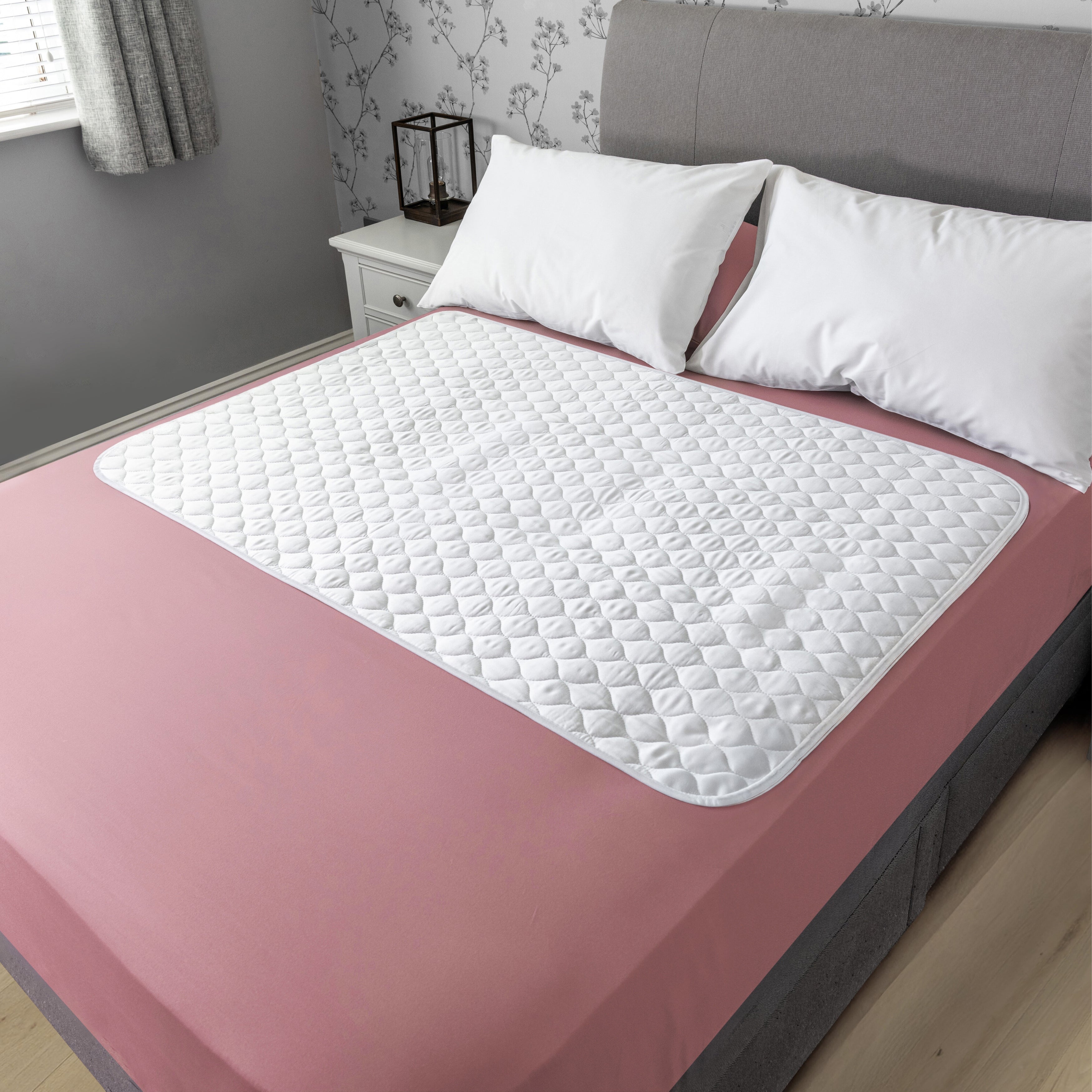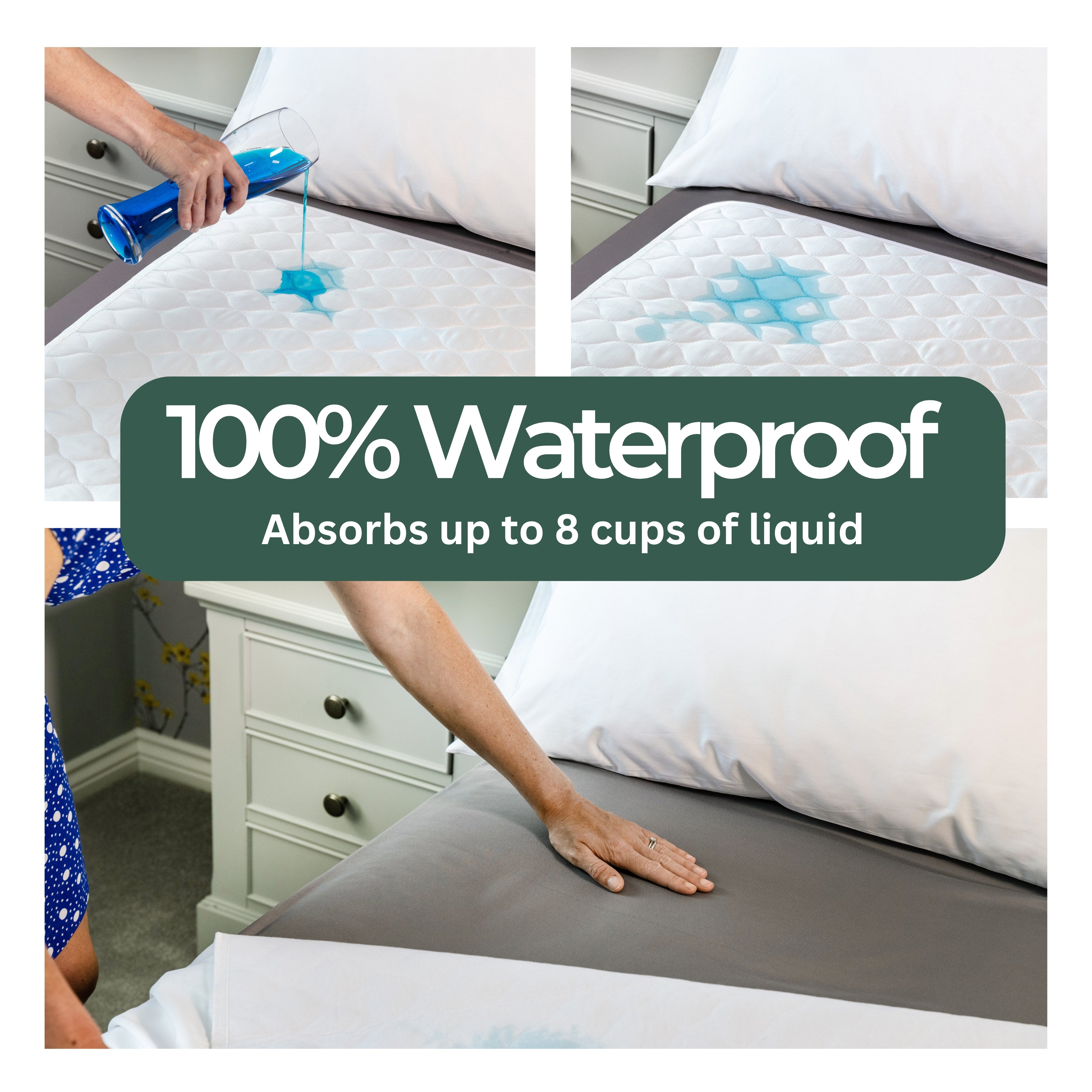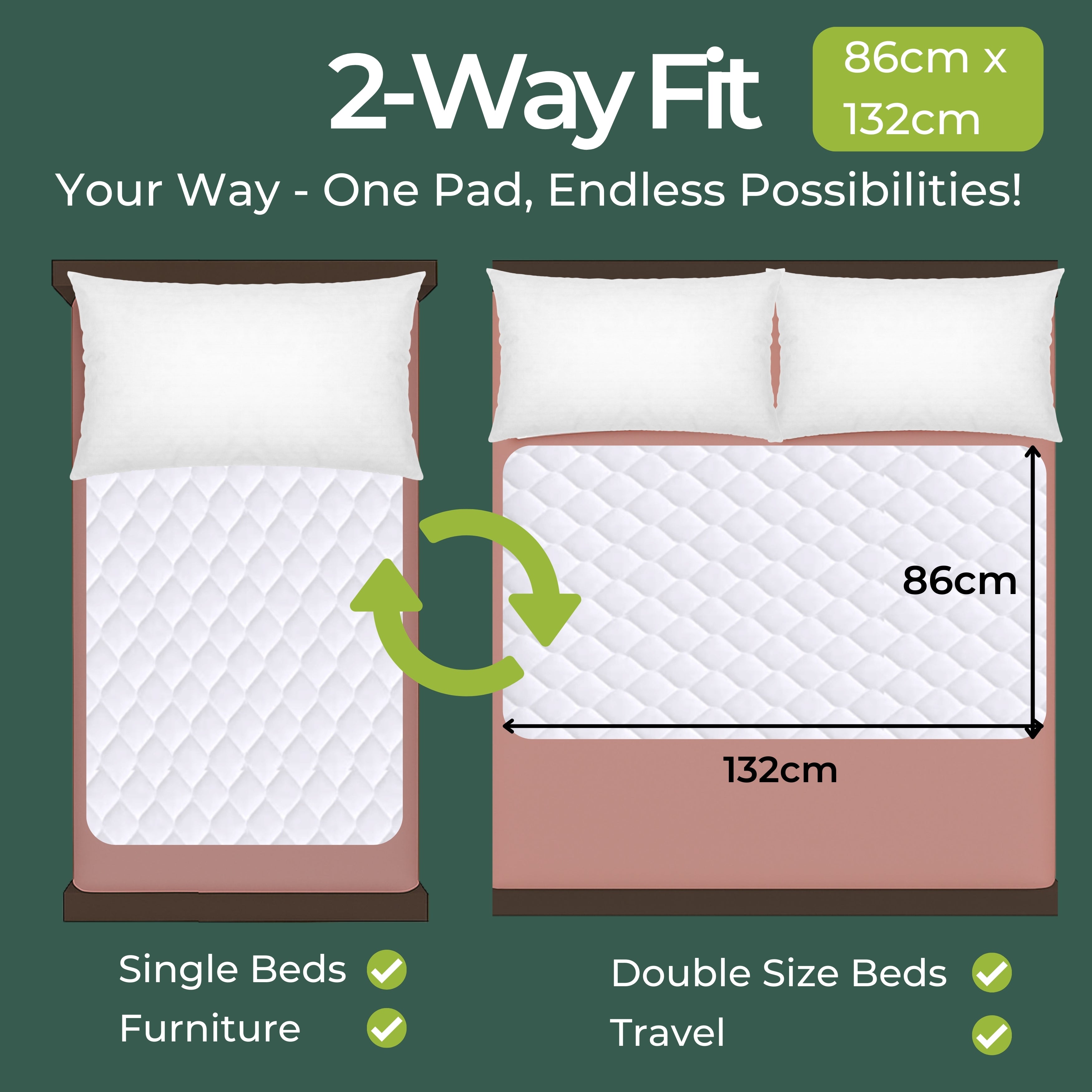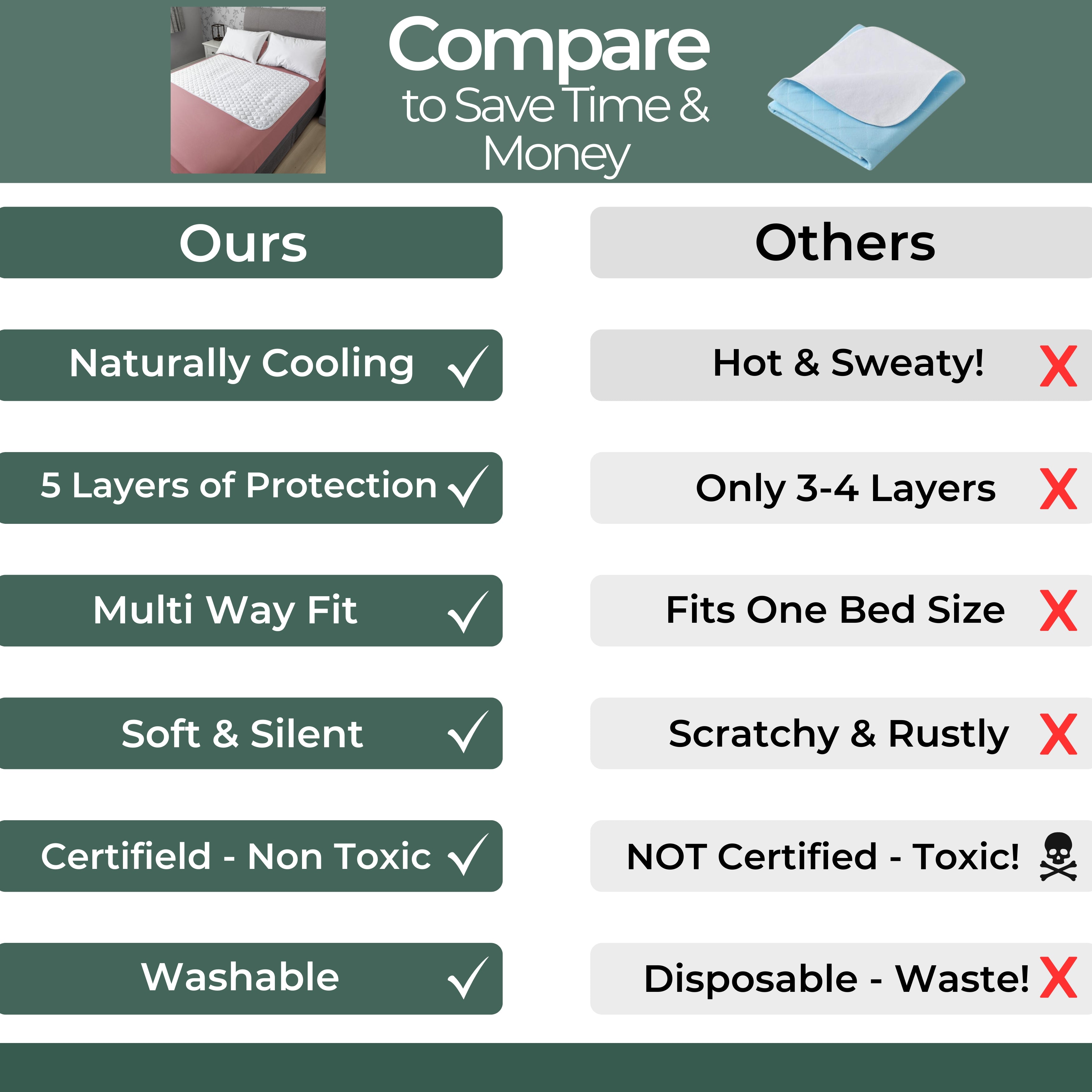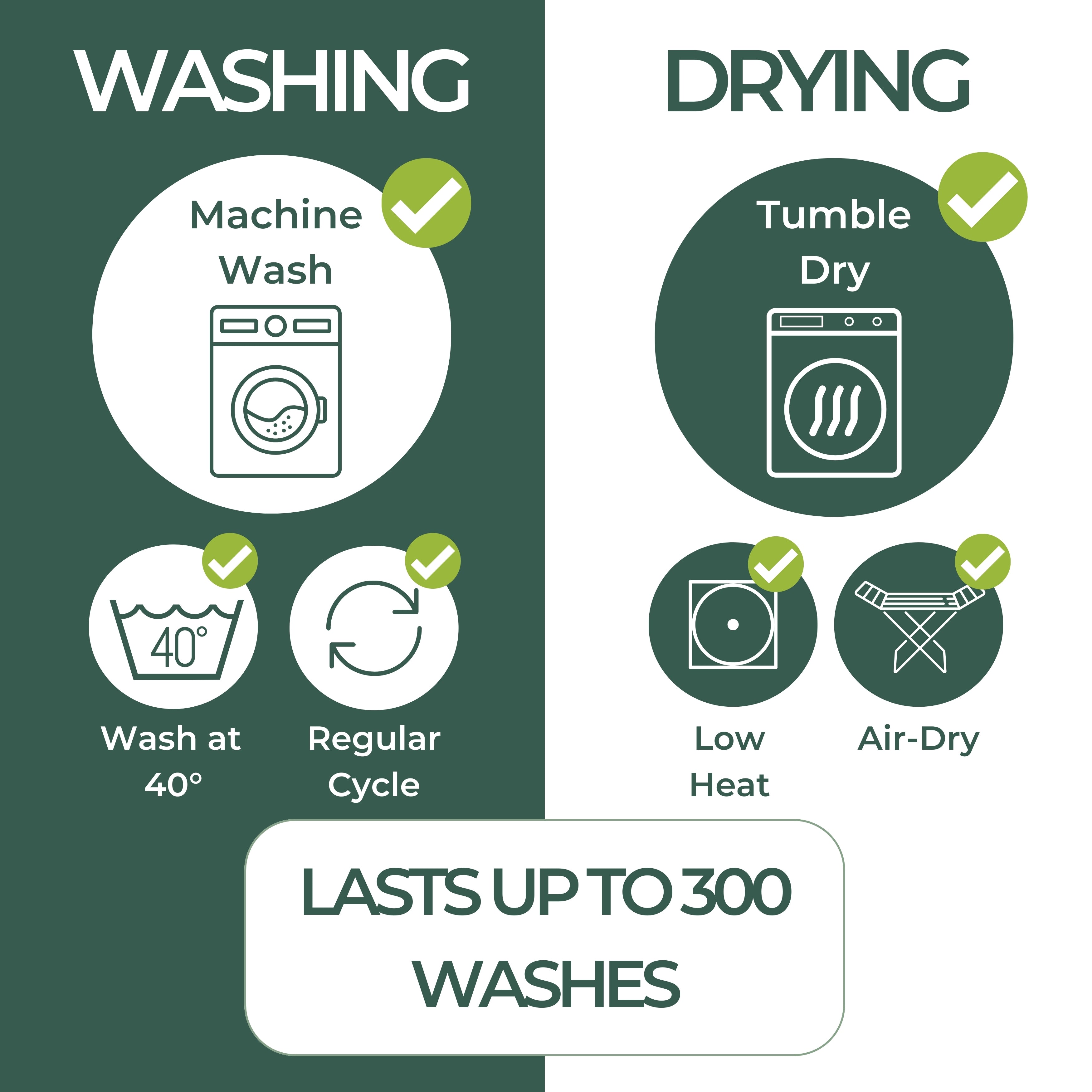Whether you’re going on a family holiday, a weekend escape, or a busy work trip, travel often brings excitement, new experiences or a well deserved change of scenery. But if you or a loved one experience bedwetting, the thought of travelling can also bring stress and anxiety.
Concerns about protecting hotel bed sheets, managing long journeys, or sharing accommodation with family, friends, or colleagues can feel overwhelming and may even make you hesitant to plan a trip. You’re not alone in feeling this way, and it’s important to remember that adult bedwetting is more common than many people think. According to Bladder & Bowel UK, around 3% of teenagers and 1% of adults in the UK live with bedwetting.
The good news? With a few discreet changes it is possible to travel confidently and comfortably this summer. Whether you’re flying, driving, or taking the train, there are practical solutions that can help you or your loved one manage bedwetting while away from home.
Planning Ahead
Hydration & Bathroom Habits
Preparing in advance can make a massive difference in how you manage bedwetting while travelling. One important step is to hydrate smartly. While it’s essential to stay hydrated, especially during travel, dehydration can irritate your bladder and increase the risk of accidents. On the other hand, drinking too much water, particularly close to bedtime, can also contribute to accidents. Therefore, aiming to sip small amounts of fluid little and often (however reducing this 2 hours before bedtime) could help minimise the chance of nighttime accidents.
Another helpful habit is to empty your bladder frequently during your journey. Use the bathroom at airports, service stations, and before boarding a plane or train, rather than waiting until the last minute or holding on for too long. This reduces bladder pressure and helps you feel more comfortable throughout your trip.
Packing discreet protection can provide peace of mind, particularly for long journeys or overnight stays. Adult absorbent pads can be worn comfortably under your clothing, offering reassurance if you are worried about potential leaks while sleeping or during long stretches without bathroom access. Lastly, pack a wet bag to store any damp clothing or used pads privately until you can wash them, keeping your luggage organised and reducing the stress of managing accidents while away from home.
Keeping a Bedwetting Diary
Keeping a diary of your food and drink intake, along with a record of when bedwetting occurs, can be extremely valuable in understanding your patterns and triggers. This method is often recommended for adults who are trying to identify correlations that may be contributing to their bedwetting.
By tracking what you eat and drink, and when you experience dry or wet nights, you may begin to notice certain triggers such as specific drinks, meal timings, or activities. Gaining these insights can help you plan better for your trip by avoiding certain triggers and adjusting your routine to minimise the risk of bedwetting while you are away. Beyond your trip, this information can also support your overall lifestyle and continence management, reducing accidents in daily life.
Finding Washing Services
If you are travelling for an extended period, whether within the UK or abroad, it can be helpful to research local washing services before you go. While you may pack multiple waterproof bed sheets and absorbent pads, there may still be times when you need to wash your sheets or clothing while away.
Check if your accommodation offers these services, or identify nearby laundrettes where you can discreetly wash your items if needed. Having this plan in place can significantly ease anxiety around bedwetting while travelling, knowing you have a practical solution should you need it.
Planes, Trains & Long Car Journeys
Travelling long distances can sometimes increase the chance of leaks, especially if you tend to fall asleep while on the move. To help you travel confidently, consider using a slim, waterproof seat pad during long haul flights or overnight train journeys for peace of mind. It’s also a good idea to book an aisle seat close to the bathroom, allowing you to get up easily without disturbing others. Before boarding, use the bathroom at least once, and consider putting on protective underwear after passing through security for comfort during the journey. It can also help to avoid caffeine or alcohol before and during travel, as these can irritate your bladder and increase the need to go.
Hotels, Airbnbs, or When Staying with Family
Worrying about wetting a hotel bed, guest bed, or Airbnb mattress is a common concern, but it can be managed discreetly and confidently. Packing a lightweight, waterproof bed pad can protect beds without drawing attention and helps you relax at night. Bringing an extra set of pyjamas can reduce stress in case of leaks, ensuring you always have something clean and dry to wear. If you need additional linens, you can quietly request spares from your host or reception without needing to explain in detail.
Managing Stress and Routine Disruption While Travelling
Travel, whether for work or pleasure, often disrupts your usual routine, and added stress can make bedwetting more likely. Taking steps to manage stress before bed can help reduce the chances of accidents while you are away. Try using breathing exercises, calming music, or a simple bedtime routine to ease anxiety and help you relax before sleep. Whenever possible, aim to maintain your usual bedtime routine, as keeping familiar habits can support your bladder health and comfort while away from home. Most importantly, remember not to let the fear of leaks hold you back from making memories, enjoying new experiences, or achieving your work goals. With a few of these small strategies, you can travel with confidence and focus on the purpose of your trip, not the worry of accidents.
You’re Not Alone
Bedwetting affects many adults, and it is nothing to be ashamed of. Travelling for work or pleasure is still possible, enjoyable, and manageable with the right preparation and mindset. By taking practical steps and planning ahead, you can reduce stress and feel more confident while away from home, allowing you to focus on making memories, exploring new places, or achieving your work goals. If you notice that bedwetting is new for you or becoming more frequent, it is a good idea to speak with your GP or a continence specialist. They can help you explore any underlying causes and offer personalised support to manage the condition, giving you the reassurance you need to live life and travel fully.

